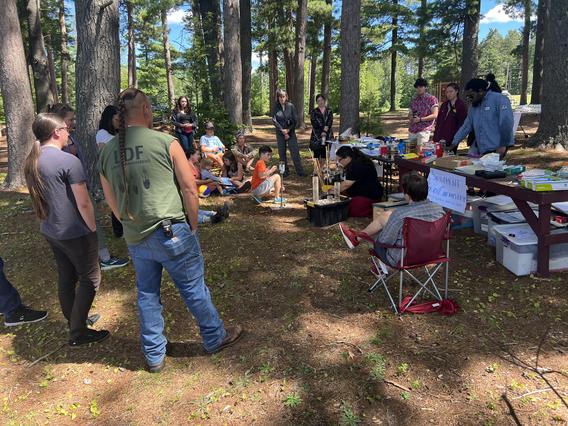
Climate change has unique and often disproportionate impacts on Indigenous communities that need to be addressed in culturally appropriate and economically viable ways. Engaging Indigenous peoples and respecting traditional environmental knowledge (TEK) ways is integral to the Midwest CASC's work. We are also committed to enhancing the capacity of non-Indigenous organizations, researchers, and students to thoughtfully and effectively interact and collaborate with Tribal entities and understand Tribal rights and concerns.
Tribal Research Experience for Undergraduates Program
The Midwest CASC Tribal Research Experience for Undergraduates (REU) program is hosted at consortium member College of Menominee Nation (CMN). The program builds capacity and develops Tribal climate change science professionals in addition to providing a research and internship experience for Tribal college students with an organization working on climate change research or related work.
Indigenous Climate Resilience Network
The Indigenous Climate Resilience Network (ICRN) seeks to convene Indigenous peoples to identify threats to Indigenous self-determination and ways of life and to formulate adaptation and mitigation strategies, dialogues, and educational programs that build Indigenous capacities to address climate-related issues. The ICRN website provides the latest tools and resources for Indigenous peoples and scientists to work together towards meeting the current challenges of climate change.
ICRN is hosted by the College of Menominee Nation's Sustainable Development Institute and is overseen by a Tribal Advisory Council in collaboration with Climate Adaptation Science Center Tribal Liaisons.
The network tracks climate change impacts Tribes and Indigenous peoples are facing and serves as a resource for those interested in supporting Indigenous self-determination and sovereignty.
